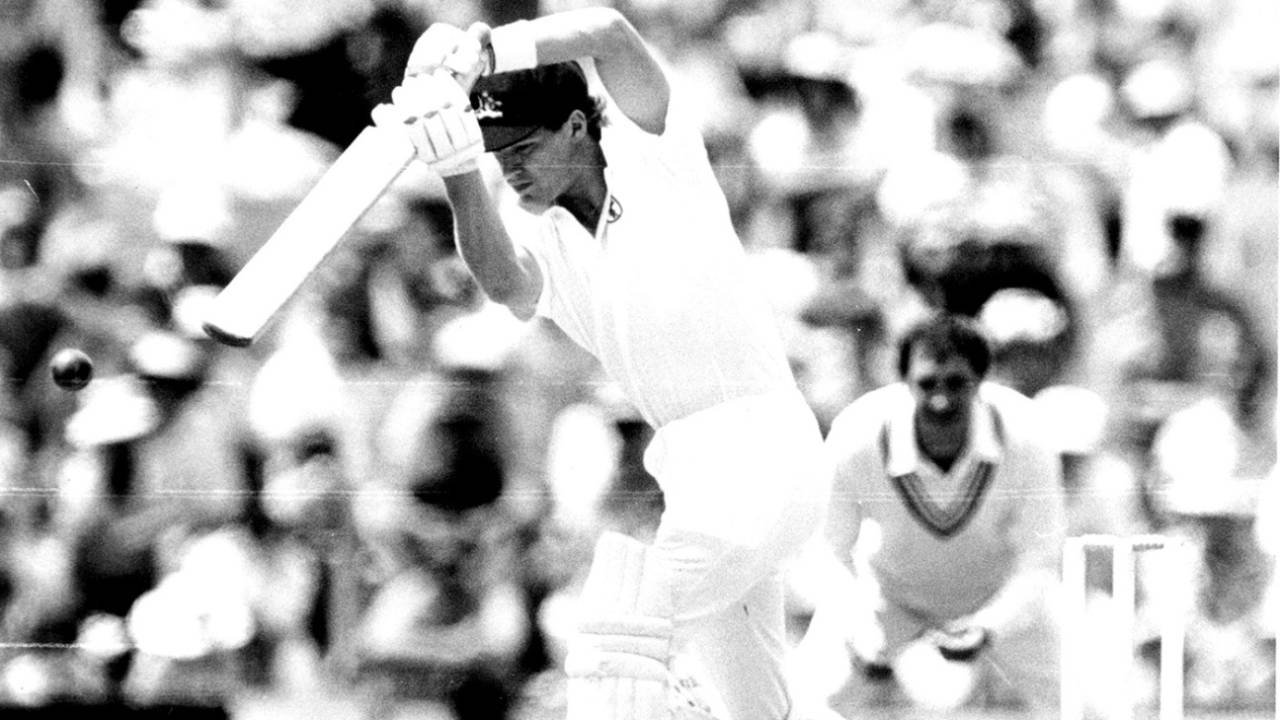Dean Jones' name will forever be linked with the south Indian city of Chennai.
Known as Madras in 1986, conditions were typically hot and humid when Jones amassed a double-century of immense skill, will power and human endurance. This was the innings of a man with a big heart. Unfortunately that same heart failed the man affectionately known as "Deano", when
Jones died in Mumbai after suffering a cardiac arrest.
Jones'
double-century in Madras contained everything a young man playing only his fifth Test innings would want. There was a wide range of shots, producing runs at an excellent strike rate, and a score that guaranteed his place in the side for a good while to come.
Jones' request was justified when he was out not long after. He was immediately whisked off to hospital where he was put on a saline drip as his body threatened to shut down. That innings was to take on a greater level of importance when the Test finished in only the second tie in the game's history.
I was not altogether surprised by Jones' sudden rise to stardom in India following a slow start to his Test career. Before the tour, he visited me in Sydney, where he discussed batting at No. 3 and anything else that might assist him in his career.
My impression? Any man prepared to pay his own airfare to get ahead in his career at a time when cricketers weren't well remunerated has the determination and dedication to succeed at international level. That instance was not uncommon. During his career and in his life after cricket, Deano eagerly sought information and used it to enhance other cricketers' performances.
He was widely respected in India not only for his heroic deeds in Madras but also for his commentating role as "The Professor". Wearing a robe and mortar board, he would accentuate his theories by pointing at a blackboard with a cane.
His advice, especially on batting in ODIs, was regularly sought, and Jones was happy to pass on his knowledge. That also gained him employment as a coach, often in places where others feared to tread, like Pakistan and Afghanistan.
This fearless approach is not surprising when you consider his upbringing. He was the son of Barney Jones, a highly competitive Carlton club cricketer, who was rumoured to once have helped
place ice blocks on a good length the night before a semi-final where University were chasing victory.
Dean inherited Barney's competitive instincts and they were honed under the watchful eye of former Australia batsman Keith Stackpole. Jones arrived at Carlton as a precocious young lad with abundant energy. Stackpole remembers his enthusiasm: "He would chase everything in the field, and he always wanted to bowl his own way, usually short."
Sometimes his enthusiasm got the better of him, especially when he asked to have
Ambrose's wrist band removed during a 1993 ODI. That was one of his few regrets. "It probably wasn't a wise idea," chuckled Jones, "seeing Curtly took 5 for 32."
Nevertheless Jones had a lot of good ideas and that's how it all ended, expressing his opinions on television in Mumbai, not a million miles from Chennai.

